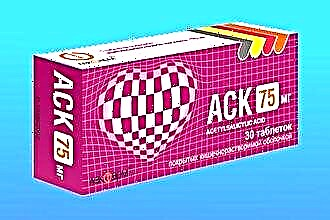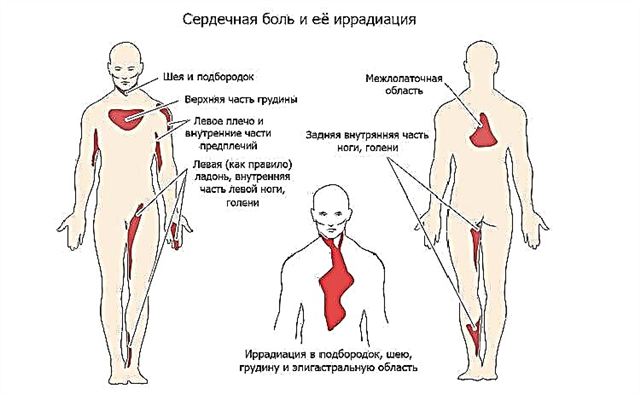Heart failure is a pathological condition of a muscular organ, accompanied by a decrease in the frequency and strength of its contractions. Normal blood circulation is impaired. To avoid complications, timely diagnosis and treatment of symptoms with pills is required.
Classification and symptoms
There are several options for the course of the disease in the left and right chambers of the heart, depending on the rate of increase in symptoms:
- acute heart failure;
- chronic heart failure.
Symptoms in the acute phase of the disease increase in a short time and reach a maximum in a few hours, and sometimes minutes. Both chambers of the heart are involved in the process. In a chronic course, the failure develops gradually, in severe cases, all organs are affected.
Acute heart failure in the left ventricle develops in several ways - this is cardiac asthma and pulmonary edema. The first one has the following symptoms:
- Dyspnea. At first, it is felt only during physical activity, and then in a calm state. At the moment of onset of suffocation, inhalation is difficult (inspiratory character). With the progression of the condition, the patient feels it at night, often wakes up.
- Fear of death.
- Palpitations.
- Sweating.
- Cough with difficult expectoration.
With pulmonary edema, patients feel the same as with cardiac asthma, but additional symptoms are added. The skin of the face and body becomes blue, breathing is noisy, bubbling, it can be heard from a distance. With pulmonary edema, pink sputum is released from the mouth.
In acute insufficiency, congestion occurs in the right ventricle (cor pulmonale). The main symptom is the appearance of swollen veins in the neck, which become more noticeable during inhalation. The patient's face and fingertips become bluish in color. Shortness of breath appears on inspiration, swelling increases. At first, they are almost invisible and temporary. With the progression of the disease, the edema persists for a long time and spreads to the face, legs and abdomen.
Heart failure is an outcome of chronic diseases. It affects the chambers of the heart individually or both at the same time. Symptoms of the disease are associated with insufficient oxygen supply to the tissues and malnutrition of organs. Symptoms of chronic damage to the right chambers:
- Dyspnea progressively.
- Forced sitting position with support on hands on the edge of the bed.
- The ends of the fingers become thicker and take the shape of drumsticks.
- The skin becomes bluish in color.
With right ventricular failure, edema appears, which grows rapidly. Patients note that they have become less likely to urinate, note the heaviness in the right side (enlarged liver). When blood circulation is disturbed in the brain, memory is disturbed, the psyche changes.
Groups of drugs
It is necessary to treat heart failure in a comprehensive manner. For this, there are a number of drugs that are selected individually for each patient, depending on the condition. Drugs effective for heart failure are divided into the following groups:
- ACE inhibitors;
- beta-blockers;
- diuretics;
- aldosterone antagonists;
- angiotensin receptor blockers;
- cardiac glycosides;
- nitrates;
- potassium preparations;
- anticoagulants.
Not all funds are prescribed at once from among the listed groups. When choosing, the attending physician takes into account the patient's condition and symptoms.
ACE inhibitors... Medicines that are included in the group of ACE inhibitors (Captopril, Lisinopril, Enalapril) are aimed at facilitating blood flow. It does this by relaxing the walls of the blood vessels. In the course of treatment, blood pressure is normalized and the load on the non-cardiac muscle is reduced. ACE inhibitors in combination with diuretics enhance the effect of the latter.
The task of the drugs is to accelerate the elimination of excess fluid. The medicine reduces the likelihood of stroke and myocardial infarction. In hypertensive patients, drugs for heart failure can sharply reduce pressure, which is associated with the presence of a high concentration of rhinin in the blood (a renal enzyme that has a vasoconstrictor effect).
Beta blockers. Any agent from the group of beta-blockers ("Bisoprolol", "Metoprolol") can not only lower blood pressure, but also slow down the pulse. Due to its dual effect, the risk of death from heart failure is reduced. Tablets cannot be drunk on their own, because they have features that must be taken into account. Take them only after receiving a prescription from a doctor.
Beta-blocker drugs for the treatment of heart failure can partially restore the muscle fibers of the heart.
Diuretics. To reduce the retention of excess fluid in the tissues, patients take diuretics. Strong agents include Furosemide and Ethacrynic acid. In a short time, they can drain several liters of water, and also reduce the severity of shortness of breath. In order to prevent the consumption of potassium in the body and not to disrupt the work of the heart, at the same time, tablets are prescribed that preserve an important trace element ("Triamteren", "Spironolactone"). Indapamide and Hydrochlorothiazide have an average duration of action.
Aldosterone antagonists... Medicines for heart failure from among the antagonists ("Veroshpiron", "Aldactone") are prescribed when it is difficult to control the disease. In a severe stage, it is necessary to prolong the patient's life and reduce the severity of symptoms. Treatment for heart failure should include potassium supplementation. This is due to the likelihood of a decrease in its concentration, which can lead to a disruption in the work of the heart muscle and end in death. To support her work, antagonists are often combined with potassium-preserving diuretics.
Angiotensin receptor blockers... By the mechanism of action, they resemble ACE inhibitors, only they do not have the side effect manifested by a dry cough. Blockers "Valsartan", "Losartan" improve the function of the kidneys, the condition of the heart muscle in case of insufficiency and hypertrophy.
The attending physician prescribes tablets from the group of angiotensin receptor blockers for intolerance to ACE inhibitors.
 Cardiac glycosides... The tablets not only improve heart function and improve exercise tolerance, but also enhance urinary function. Cardiac glycosides include "Digoxin", "Digitoxin".
Cardiac glycosides... The tablets not only improve heart function and improve exercise tolerance, but also enhance urinary function. Cardiac glycosides include "Digoxin", "Digitoxin".
Nitrates. Tablets from the group of nitrates ("Nitroglycerin", "Sustak") eliminate congestion in the veins, dilate the arteries of the heart, thereby eliminating the deficiency of blood that nourishes the tissues.
Potassium preparations. Medication for heart failure should include potassium supplements. The trace element helps in the work of the conducting system, regulates blood pressure. Most often, "Panangin", "Asparkam" and "Potassium orotat" are used to treat the disease.
Anticoagulants. If the heart is dysfunctional, the likelihood of blood clots in its chambers increases. Some tablets from this group are contraindicated for patients due to the peculiarities of the disease. Indirect anticoagulants are usually prescribed, but the patient is obliged to monitor blood coagulation parameters. If the dose is exceeded or if there are contraindications, these drugs can cause bleeding.
The principle of drug therapy
Treatment of heart failure is a complex process.It is necessary to take into account the principles adopted in the basis of the prescription of the tablets. These include:
- Improving the patient's quality of life due to the impact on the leading symptoms of the disease.
- Protection of organs that will be affected in heart failure.
- Reducing the length of hospital stay.
- Prolongation of life span.
To achieve this, the patient must be prepared to take pills for life and daily, strictly following the recommendations of the attending physician.
Treating heart failure symptoms with pills is a disciplined process. Often, drugs must be taken strictly at the appointed time, without skipping. Medicines relieve the patient's condition and significantly improve his quality of life. The main symptoms that disrupt well-being and aggravate the prognosis:
- dyspnea;
- heart cough;
- tachycardia.
If the drug is selected correctly, taking into account the characteristics of the patient, then life expectancy will increase, and the risk of complications will also decrease.
The attending physician selects pills that act not on shortness of breath, but on its cause - heart failure. Effectiveness in reducing manifestation is provided by such means:
- ACE inhibitors, which dilate blood vessels, make it easier for blood to flow through them.
- Beta-blockers that enrich tissues with oxygen. This can significantly reduce the load on the heart, reduce the frequency of its contractions.
- Diuretics are used to flush excess water from the body, and they can also prevent the risk of pulmonary edema.
The drugs of these groups are prescribed in accordance with the severity of the disease, taking into account the contraindications.
The appearance of cough in diseases of the heart and respiratory system is associated with different mechanisms. Therefore, the drugs for treatment are different. The main goal of therapy is to reduce congestion. Medical treatment includes:
- Diuretics that will drain excess water and reduce blood congestion.
- Antitussives (Glaucin, Codeine), but they are not prescribed in all cases.
- Vasodilators that dilate blood vessels and reduce pressure in them (Atacand, Losartan).
When a cough occurs, and even more so - hemoptysis, self-medication is not recommended. The patient must undergo additional examination to clarify the site of the rupture of blood vessels.
For the treatment of tachycardia, cardiac glycosides are used as the main means. They increase the release of blood from the heart and slow down its rhythm. If the pills are ineffective, they are changed to those that are more suitable for the patient. Additionally, potassium preparations, beta-blockers are prescribed.
Forecast
The prognosis for life depends on the severity of the condition. Most often, patients seek help at an advanced stage of the disease. With a timely visit to the doctor and the implementation of all recommendations, the risk of death is reduced to 30% of the total number of patients. If the patient begins to be treated at the first stage, then the condition can be stabilized by medication. As with any disease, in the case of heart failure, timely prescribing of drugs and accuracy of following all the recommendations of the attending physician is important.
When one or another isolated symptom is identified, one should not make hasty conclusions and take serious heart medications without consulting a cardiologist. Indeed, the process of taking tests and making a diagnosis can be delayed, but this time is worth not experimenting with your health.



